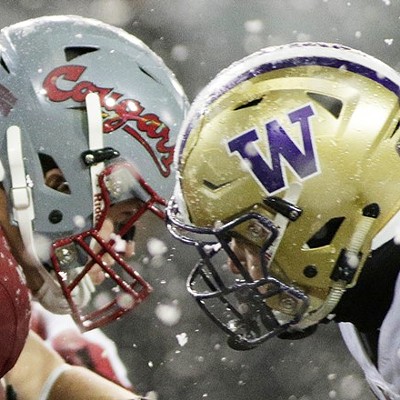Less than a decade ago, I wrote a story titled “Beyond $2” for the Inlander, deconstructing the outrage over gas crossing the long-held $2-a-gallon line. Seems pretty quaint today, with gas continuing to push $4 a gallon here and well over that in bigger cities.
Until mid-2004, crude oil had never passed $40 a barrel; by 2011, it averaged $111 a barrel, with prices at the pump to match. At the time of my story, experts were alarmed by “peak oil” — meaning we would be running out of oil completely at some point.
Well, times have changed, and today many of those same experts are predicting “peak demand” instead. Oil imports to the U.S. are down 13 percent this year.
So why are gas prices still so high? Even NPR asked whether the law of supply and demand has been repealed. Others take a darker view and argue we are being exploited by financial speculators. In fact, the European Union is knee-deep in an investigation into the high cost of oil; just this week, the Federal Trade Commission joined in. (The focus is on how prices are set and/or manipulated, and it’s sounding a lot like the bond rating agencies’ role in our most recent economic debacle.)
Before you get out your torches and pitchforks, consider that the brave, new world of $100-a-barrel oil is an extremely complicated place. While $2-a-gallon gas is great for everyone’s personal pocketbook, without $4-a-gallon gas we never would have developed the Prius or flocked to public transportation, as we have in recent years. And while gas at $4 a gallon also allowed for growing oil independence thanks to tar sand drilling, shale oil extraction and fracking, those methods come with steep environmental costs.
So high prices aren’t good for us, and low prices aren’t either. Really, this oil addiction thing just isn’t that great for anyone. But it’s a lot worse if we’re all depositing more money than necessary into the offshore accounts of ExxonMobil and BP.
The stakes in these investigations go way beyond your wallet. If the oil industry has artificially inflated prices, they’ll be replaying what too many industries — from mortgage lenders to Internet startups — have done when their paradigm shifts. They rig the system and delay the market from making the necessary corrections. Then when reality hits, it hits hard. Cheaper gas would be cheered by consumers, but a price crash could easily throw a Middle Eastern regime off its throne and create chaos in the world.
If the laws of economics still apply, gas will get a bit cheaper sometime soon. A lot cheaper? Be careful what you wish for.





















